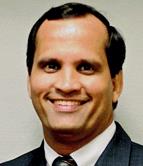What Are New Board Members Saying About Outsourcing?

By Louis Garguilo, Chief Editor, Outsourced Pharma

There are new leaders on the Outsourced Pharma Editorial Advisory Board. They’re not hesitant to provide bold analysis on outsourcing drug development and manufacturing.
They are:
Charlene Banard, Senior Vice President, Global Quality, Shire
Bernie Huyghe, Senior Director, Pfizer
Tina Larson, VP Technical Operations, Achaogen
Sesha Neervannan, SVP Pharmaceutical Development, Allergan
Carol Sherako, Director Program Management, Genzyme
Here are some of their recent thoughts, and a few grams of guidance, taken from these and the pages of Life Science Leader magazine, and Outsourced Pharma thought-leadership conferences.
Focused Flexibility You Can Measure
 Banard and colleagues from Shire hosted a discussion at an Outsourced Pharma conference in Boston, documented in the articles The Creation Of Shire's Outsourcing Model and For M&A, Shire Stays Three Dimensional With CMOs.
Banard and colleagues from Shire hosted a discussion at an Outsourced Pharma conference in Boston, documented in the articles The Creation Of Shire's Outsourcing Model and For M&A, Shire Stays Three Dimensional With CMOs.
Shire applies a dynamic and flexible approach to managing its widespread supply-chain. This approach, applied to individual supplier relationships, necessitates articulating the value proposition of each one “internally to your company,” Banard says. “There’s no way you can just do this out of the goodness of your heart. That’s not what we’re suggesting. But we have learned putting the relationship into strategic terms, and managing for some type of win-win, brings a combined competitive advantage to the marketplace.”
That clear articulation is backed by rigorous measurement. Banard elicited audible gasps at the Boston conference when she presented a detailed CMO-evaluation dashboard. “I’m always hesitant to put up some of our dashboards,” she said, “for fear they might make people’s heads spin at first. But they’re designed to show at a glance how our suppliers are performing, and where we need to focus our efforts.”
Her advice to drug sponsors who may not have the human and financial resources available to Shire? “You can’t afford to not be involved as much as you possibly can,” she replies. “[Sponsors are] accountable for the performance of each supplier, and that shared relationship. We use tools to measure CMO quality performance, but in fact, these are tools to understand how we are doing, as the provider of that contract. Often, when a supplier is not performing as expected, we find we can do something to help improve that performance.”
A Board Full Of Questions
 The most valuable Board members might be those best at posing insight-inducing questions. We learned in Pfizer's Key Questions For CMO Innovation that nobody poses better questions to CMOs than Huyghe of Pfizer. Here are some of those questions, specific to driving innovation and new technologies throughout the external supply chain.
The most valuable Board members might be those best at posing insight-inducing questions. We learned in Pfizer's Key Questions For CMO Innovation that nobody poses better questions to CMOs than Huyghe of Pfizer. Here are some of those questions, specific to driving innovation and new technologies throughout the external supply chain.
Would having internal funding for innovation in your budget help you get customers?
How many of you have lost a customer because your company couldn't innovate?
How many CMOs believe some clients may have not approached you at all because you’ve made it clear you don’t partner for innovation or co-development?
If Big Pharma approaches you with an opportunity, you also have to entice the customer, show you have some skin in the game: What are you [the CMO] bringing to the table to help us [Pharma]?
Regarding this last topic, Huyghe adds: “Today, Big Pharma does pay CMOs to innovate and learn. And CMOs will most likely be able to utilize that new technology – potentially even with our competitors. So what are we really getting out of the relationship? From the CMO perspective, yes, the challenge is very much to justify the cost. But for us, we’re not always looking at the best price, but we are always looking for the best deal.”
So You Want To Be A Project Manager
 If you haven’t already, you might want to read these articles featuring Sherako of Genzyme, (Required Skills For Project Management At Genzyme; Sanofi-Genzyme – And CMOs – Serious About Training Project Managers). In those articles, she stipulates that any presumptive candidate for project manager should have an inherent desire to understand what makes a project tick.
If you haven’t already, you might want to read these articles featuring Sherako of Genzyme, (Required Skills For Project Management At Genzyme; Sanofi-Genzyme – And CMOs – Serious About Training Project Managers). In those articles, she stipulates that any presumptive candidate for project manager should have an inherent desire to understand what makes a project tick.
“Unfortunately,” she concludes, “this concept can get lost nowadays. Some project managers don’t have the awareness – or that drive – to translate research and development strategy into detailed activities and plans that can be supported by a cross-functional team. Yet, they want the title of project manager. It concerns me.”
“First, to call yourself a project manager, you need the basic skills to understand how to take strategy and translate it into a detailed “work-breakdown” structure of all project activities,” Sherako continues. “Planning activities, sequencing them, resourcing them, coming up with a schedule and then managing to a critical path – that is an absolute. Openly sharing the overall project plan with your outsourcing provider, so everyone understands where they fit into the scheme, is enlightening and engaging for both sides.”
A second prerequisite for project managers, according to Sherako, is to have industry-specific knowledge. “I don’t care if it’s the defense industry, or it's environmental remediation. This has to do with a deep understanding of the strategic stage-gates and specific requirements to drive a project forward, from discovery to commercialization, within a highly regulated industry. If you’re discovering and developing drugs, then you need to know the entire industry framework you’re working within.”
Don’t Overthink The Path Forward
 In Can Pharma Build An Innovation Business Model For CMOs?, featured in Life Science Leader’s 2017 Industry Outlook issue, Neervannan of Allergan agrees that moving from a traditional model of fee-for-service to one of partnerships, is key to the industry’s future. He also makes clear you don’t need to overthink this concept.
In Can Pharma Build An Innovation Business Model For CMOs?, featured in Life Science Leader’s 2017 Industry Outlook issue, Neervannan of Allergan agrees that moving from a traditional model of fee-for-service to one of partnerships, is key to the industry’s future. He also makes clear you don’t need to overthink this concept.
“Shared innovation can be approached initially from a strict business sense,” he says. “You can ask if a quid-pro-quo approach works ... where the innovators are rewarded with payments for specific innovations. This can then evolve into an ongoing milestone approach, not unlike licensing deals we are familiar with. It does require, though, evolved thinking from both the sponsors and providers – specifically on how to estimate valuation – and coming to a mutually acceptable business agreement.”
Has Allergan put this into practice? “Yes, we’ve worked effectively with several vendors and partners on novel technologies,” Neervannan replies. He says while innovation isn’t “a routine selection criteria for CMOs, we are increasingly selective in looking for innovative partners.” Examples include for “difficult-to-synthesize molecules or unique formulation technologies.”
Are the CMOs ready to help with innovation? “I believe most large CMOs today are looking for big manufacturing contracts, and not so interested in R&D work, where more innovation is called for,” he says. “At the same time, we are seeing more boutique companies — mostly in the U.S. and Western Europe — who thrive on this innovation model, and we increasingly seek them out.”
These relationships, he explains, “are dependent on mutual trust and respect. That starts with a big company like mine realizing we want the help from the outsourcing innovator community, and taking responsibility for providing the appropriate incentives.” Most important is for sponsors to provide “clear rewards in exchange for solutions to problems. Ultimately,” he concludes, “it comes down to recognition and reward.”
What Really Helps Drug Sponsors
 Larson of Achaogen will grace the cover of the annual CMO Leadership Awards supplement to Life Science Leader’s March issue. You’ll only need a quote or two to know it’s an article you’ll want to read in full. (Here’s a link to the 2016 issue.)
Larson of Achaogen will grace the cover of the annual CMO Leadership Awards supplement to Life Science Leader’s March issue. You’ll only need a quote or two to know it’s an article you’ll want to read in full. (Here’s a link to the 2016 issue.)
“It’s interesting to think about why the small molecule industry – including CDMOs and CMOs – hasn’t learned or revolutionized in the way the biologics industry has, even in places where we have common technology.”
“If you can get 200 percent more out of a biologics manufacturing process from a CMO, who cares? That’s not what’s driving our cost.”
Larson will next provide thoughts in OutsourcedPharma.com on the topic of hiring and taking advantage of the skillset of a younger workforce. In short, she thinks Millennials have some interesting traits that lend themselves to modern-day outsourcing activities and relationships.
A warm welcome to our new board members. Readers can anticipate that more insight and advice is on the way.
